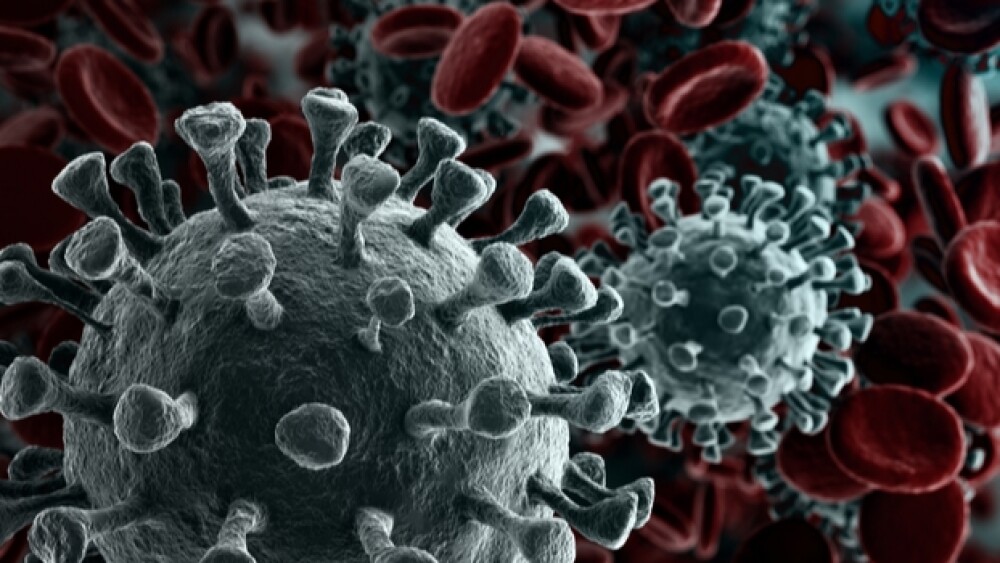The U.S. Food and Drug Administration approved the first blood test that looks for the antibodies against the novel coronavirus that causes COVID-19.
The U.S. Food and Drug Administration (FDA) approved the first blood test that looks for the antibodies against the novel coronavirus that causes COVID-19. This is different than assays that test for presence of the virus—those test to determine if a patient has COVID-19. These new antibody tests determine if the person was exposed to the virus, had COVID-19 and recovered. And it suggests, if positive, that the person is now immune to COVID-19 and can’t get it again.
Research Triangle Park, North Carolina-based Cellex was granted an emergency use authorization (EUA) on its test yesterday.
The test is performed on a blood sample taken from a patient’s vein and can be performed by laboratories certified under the Clinical Laboratory Improvement Amendments of 1988 (CLIA), the Health and Human Services division that oversees clinical diagnostic testing in the United States.
ad
The authorization stated, in part, “Results are for the detection of SARS-CoV-2 antibodies, IgM and IgG that are generated as part of the human immune response to the virus. IgM antibodies to SARS-CoV-2 are generally detectable in blood several days after initial infection, although levels over the course of infection are not well characterized. IgG antibodies to SARS-CoV-2 become detectable later following infection. Positive results for both IgG and IgM could occur after infection and can be indicative of acute or recent infection.”
Mayo Clinic is reportedly to begin antibody testing on Monday as well, using an internally developed test. Elitza Theel, director of the Mayo Clinic laboratory testing COVID-19 antibody tests, told Minnesota Public Radio (MPR), “It’s important to know that these types of tests are different than all of the molecular tests that are being done off of nasal swabs or throat swabs. Those tests detect viral genetic material [to show whether the coronavirus has infected that person].”
Theel also pointed out that, in some cases, it takes 10 to 11 days for an individual’s immune system to attack the virus and produce the antibodies. That’s why the tests won’t be used to diagnose patients with COVID-19 that are showing symptoms within the last two or three days.
Theel also says Mayo hopes to have the tests available next week, but because of a limited supply, will be doing a slow roll out and hope that commercial manufacturers will speed production in the next few weeks.
“FDA approval is not needed at this time,” Theel said. “However, laboratories that are offering these tests have to go through a very rigorous verification process to make sure that the tests they’re offering provide the right results.”
Part of the reason these antibody tests would be valuable is it can provide guidance on people potentially returning to work and continuing quarantine.
ad
There is also the potential to use antibodies against the virus for therapy against the disease.
Theel said, “As we wait for antivirals and vaccines to be developed and deployed, we need some sort of bridging therapy. So, the idea here is to identify individuals who have recovered from COVID-19, collect their plasma, make sure that it has the antibodies, and then use that plasma to treat acutely ill patients.”
Of the tests in general, and specifically the Cellex test, Alan Wu, professor of laboratory medicine at the University of California, San Francisco and chief of the clinical chemistry and toxicology laboratories at Zuckerberg San Francisco General Hospital, told USA Today, “Antibody positivity likely means a person has recovered and can’t be reinfected. This test will be extremely valuable, especially for healthcare workers.”
Healthcare workers are, obviously, at the front lines of this battle and at high risk of catching COVID-19.
“We could sort out who among the health care workers has antibodies and assign them to coronavirus patients,” said William Schaffner, a professor of preventive medicine and infectious disease at Vanderbilt University in Nashville, Tennessee. “They’d still use protection, but would have a much greater sense of security.”





